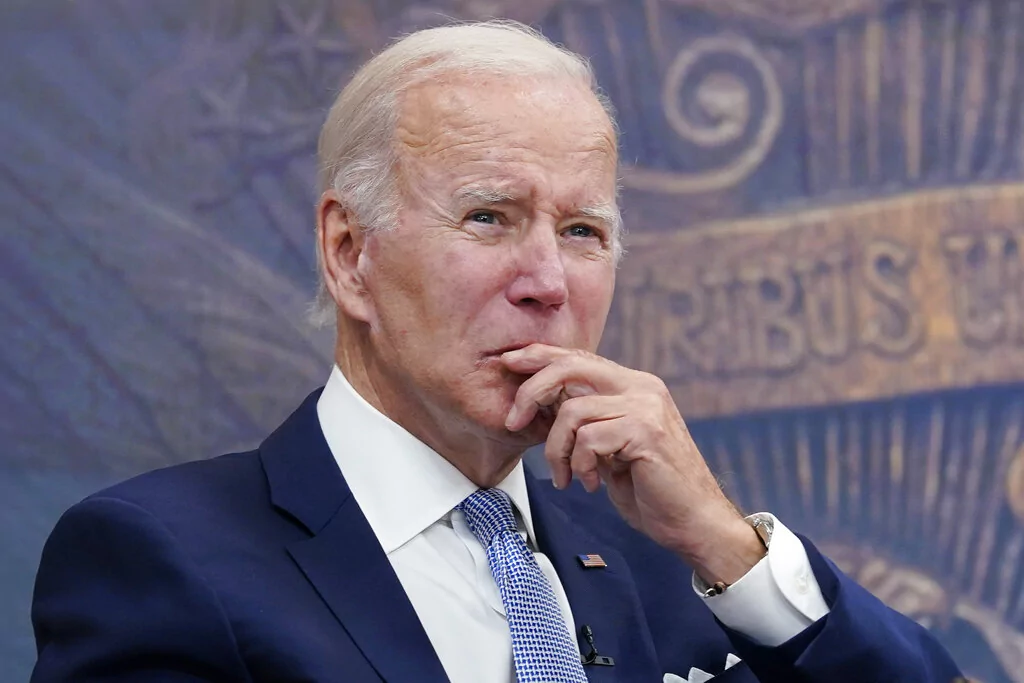

The Department of Justice is under legal pressure to release audio recordings of the interview between former special counsel Robert K. Hur and President Joe Biden, even as Biden’s term winds down.
After refusing to hand over the audio to Congress and outside groups, the DOJ remains caught up in several court battles, in which it has continued, as recently as this week, to ask judges to keep the audio and other material from Hur’s inquiry out of the public eye.
The legal fights stem from the House Judiciary Committee, two conservative groups, and a coalition of major media companies suing the DOJ in an effort to obtain the audio recordings from a two-day interview Hur conducted with Biden in October 2023 as part of the special counsel’s investigation into the president’s handling of classified documents.
The DOJ released a redacted transcript of the interview this year, but the department maintains that the audio is protected by executive privilege. Biden asserted the privilege in May, as soon as Congress threatened contempt proceedings over it.
During the special counsel investigation, Hur found that Biden mishandled top-secret material. However, Hur declined to prosecute the then-80-year-old president in part because of what he described as Biden’s lagging memory and “elderly” demeanor during their interview. Hur’s descriptions of Biden prompted outrage from Democrats and the White House, but Hur was later vindicated when Biden’s mental decline led to the president dropping his bid for reelection.
The DOJ has responded to the lawsuits over the interview recordings by saying it has been transparent enough by releasing redacted transcripts of it and that the audio is unavailable because of Biden’s executive privilege claim.
One of the conservative groups, the Heritage Foundation’s Oversight Project, has two pending Freedom of Information Act lawsuits against the DOJ related to the Hur investigation. Kyle Brosnan, an Oversight Project lawyer, told the Washington Examiner it is imperative his group obtain the audio recordings despite Biden leaving office.
“These records are still relevant in revealing the scope of the cover-up of the President’s mental state, exposing his egregious use of executive privilege to shield the public from evidence of his own corruption, and highlighting the very real dangers America faces from having a President who is asleep at the wheel,” Brosnan said. “It is an urgent and open historical question as to who was actually making decisions in this White House.”
If judges decide that the audio recordings can remain under wraps, legal experts say there is no way to know if a Trump DOJ will change gears and release them.
One senior Republican aide familiar with Congress’s legal proceedings against the DOJ said Trump’s administration will have access to the audio recordings and that it is possible the DOJ could provide them to Congress in the next term. At that point, it is possible Congress could share them with the public.
However, the aide cautioned that Biden’s assertion of executive privilege remains a relevant factor.
“Normally, new administrations defer to old administrations on privilege,” the aide said. “But who is to say what the Trump administration will do?”
Some lawyers have described executive privilege as a murky concept that is not explicitly addressed in the Constitution and can come into conflict with Congress’s authority to conduct oversight of the executive branch. This issue cropped up during the committee’s Jan. 6 investigations, when the Biden White House gave the committee records that Trump claimed were protected by executive privilege.
CLICK HERE TO READ MORE FROM THE WASHINGTON EXAMINER
Ilya Shapiro, a lawyer who works for the Manhattan Institute, told the Washington Examiner it was “an open legal question whether a president can waive a predecessor’s executive privilege.” He added, however, that privilege claims over the audio tapes were “weak.”
“The issue of who knew about Biden’s decline and when is of utmost public concern, and since we’ve already gotten Hur’s conclusion, the privilege claim over the interview [recordings] is exceedingly weak,” Shapiro said.







